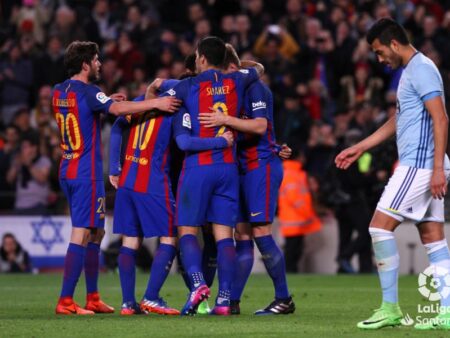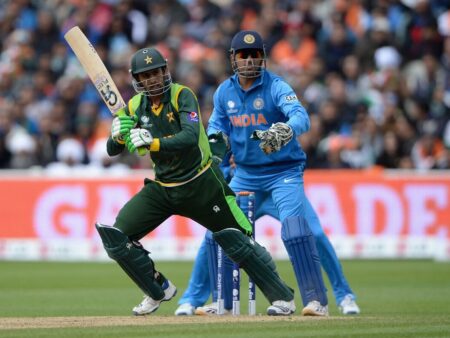
The 2025 summer transfer window has burst into life with an intensity that promises to redefine squad dynamics across Europe. With unprecedented early movements and staggering sums changing hands, particularly within the English Premier League, clubs are laying down serious markers. This year, the anticipated impact of the new FIFA Club World Cup format appears to have accelerated an already competitive market, prompting some of football`s biggest names to make decisive, and often incredibly expensive, plays long before the traditional mid-summer rush.
The Premier League`s Dominance: A Predictable Financial Arms Race
It`s an annual spectacle: the opening of the transfer window transforms the quiet off-season into a whirlwind of speculation, negotiation, and, ultimately, massive spending. This summer, however, feels distinctly different. The usual trickle of rumors has been replaced by a torrent of confirmed deals, many involving colossal fees. And, as if on cue, the Premier League, with its unparalleled broadcast revenues and global reach, has once again asserted its financial supremacy.
Despite persistent murmurs of `financial fair play` and calls for greater austerity, the top English clubs appear to be operating in a different fiscal dimension. The narrative often shifts from “building sustainable models” to “securing elite talent at any cost” with remarkable fluidity. This rapid acceleration of high-value transactions, especially in early June, suggests a strategic response to the evolving football calendar, including the expanded Club World Cup, ensuring new acquisitions are integrated well before pre-season tours commence.
The Titans of Transfer: Who`s Paying What?
A glance at the current top five most expensive transfers underscores the Premier League`s undeniable pull and willingness to invest heavily. These figures, as reported by Transfermarkt, paint a vivid picture of ambition, and perhaps, a touch of desperation, as clubs vie for that elusive competitive edge.
1. Florian Wirtz to Liverpool (€125 million)
Leading the pack by a significant margin, Liverpool`s acquisition of former Bayer Leverkusen sensation Florian Wirtz for a staggering €125 million marks the single biggest transfer of the summer so far. For the reigning 2024-25 Premier League champions, this move is a clear statement of intent, aimed squarely at sustained domestic dominance and, perhaps, the ultimate European prize. Wirtz arrives with a reputation for dazzling skill and creativity, honed over years in Germany. The question isn`t just about his talent, but whether even a nine-figure sum can truly guarantee Champions League glory, or if it merely buys a ticket to the increasingly exclusive lottery.
2. Matheus Cunha to Manchester United (€75 million)
Manchester United, a club perennially at the heart of transfer discussions, has once again made a significant splash. Despite a disappointing season culminating in a Europa League final defeat, the Red Devils have secured Matheus Cunha from Wolverhampton Wanderers for approximately €75 million. It’s a familiar pattern: substantial investment follows underperformance. One might wryly observe that talk of “financial struggles” at Old Trafford seems to evaporate remarkably quickly when a target of this calibre becomes available. Cunha’s arrival is intended to inject much-needed dynamism into a squad desperately seeking a return to its former commanding heights.
3. Martin Zubimendi to Arsenal (€70 million)
Arsenal has been notably proactive this summer, seemingly driven by a fresh impetus in their recruitment strategy. Under new leadership in their sporting director`s office, the Gunners have moved decisively to bring Martin Zubimendi from Real Sociedad for €70 million. This acquisition, alongside other notable signings like goalkeeper Kepa Arrizabalaga and midfielder Christian Norgaard, signals Arsenal`s commitment to building a formidable core. The potential arrival of Viktor Gyokeres, rumored to be another blockbuster deal, only reinforces the club`s aggressive pursuit of top-tier talent, transforming aspirations into tangible investments.
4. Jamie Gittens to Chelsea (€64.5 million)
Chelsea, fresh off a UEFA Conference League victory and having claimed the inaugural FIFA Club World Cup, continues its ambitious squad overhaul. The signing of Jamie Gittens from Borussia Dortmund for around €64.5 million represents another significant outlay for the West London club. This move positions Gittens among Chelsea`s most expensive ever signings, further showcasing their strategy of investing heavily in promising young talent to complement their existing victorious squad. Alongside other high-profile arrivals, Chelsea`s spending underscores a relentless drive to remain at the pinnacle of European football.
5. Mohammed Kudus to Tottenham (€64 million)
Tottenham Hotspur, navigating the aftermath of a deeply underwhelming Premier League campaign (despite securing the UEFA Europa League title), has also committed significant funds. The arrival of Mohammed Kudus from West Ham United for approximately €64 million signals a clear intent to revamp their roster under new management. Kudus, now the second most expensive signing in Tottenham`s history, is part of a broader recruitment drive that includes defender Kevin Danso and the permanent signing of Mathys Tel. With Champions League football on the horizon, Spurs are clearly determined to avoid a repeat of last season`s domestic struggles.
The Enduring Quest for Glory: What Does This Mean?
The sheer volume and value of these early summer transfers highlight an undeniable trend: the Premier League`s financial might continues to shape the global football landscape. Clubs are not merely signing players; they are making strategic declarations, investing vast sums in the hope of securing competitive advantage, silverware, and the intangible allure of `glory.` Whether these multi-million-euro bets will translate directly into tangible success on the pitch remains the ultimate, fascinating, and perpetually debated question. For now, the summer transfer window is a high-stakes poker game, and the Premier League clubs are certainly not afraid to show their hand.










